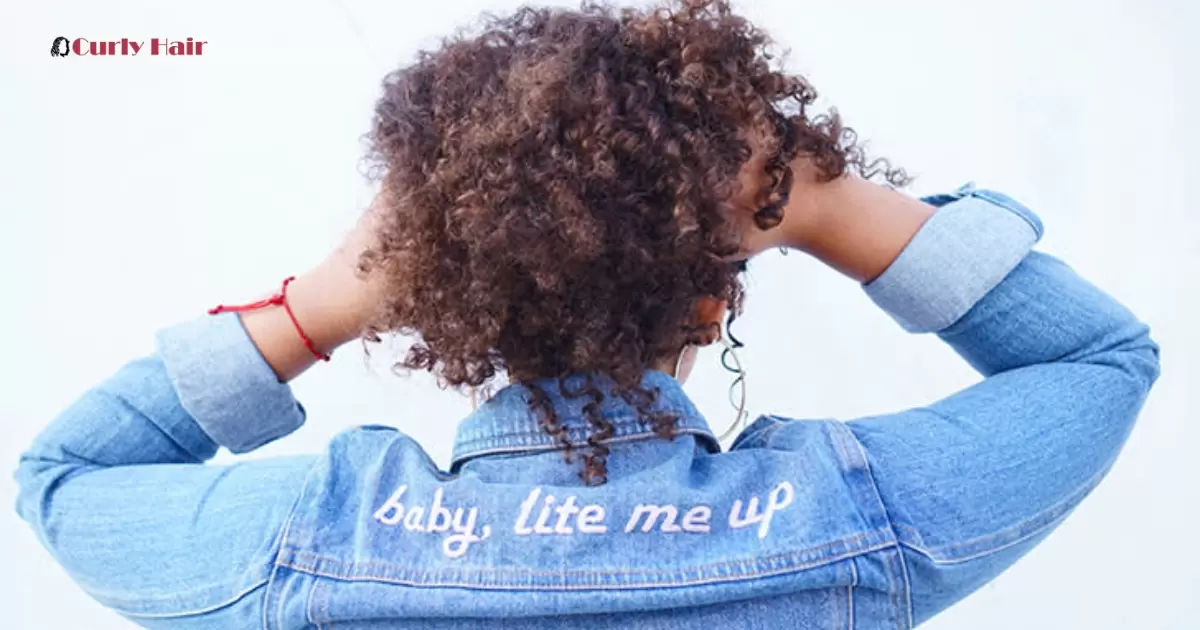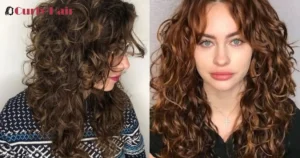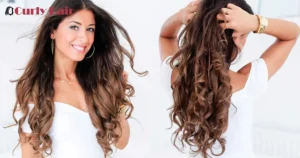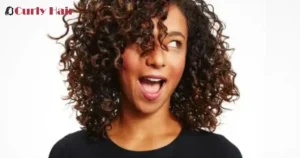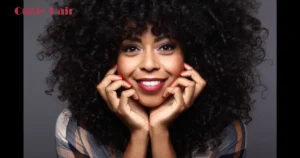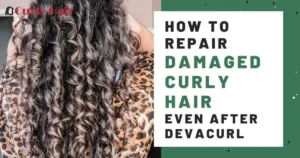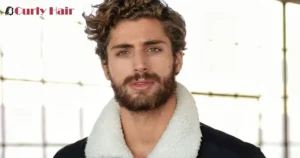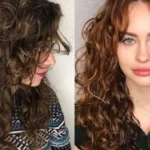Dandruff in curly hair can be tricky to manage. The scalp’s natural oils have trouble reaching the ends of curly strands. This can lead to dry, flaky skin on the scalp. Curly hair also tends to trap these flakes, making them more visible. To tackle this issue, try incorporating a few effective treatments and natural remedies into your hair care routine.
Are you tired of seeing white flakes in your beautiful curls? Dandruff can be a real pain for people with curly hair. It’s not just annoying, it can make you feel self-conscious too. Many wonder how to get rid of dandruff in curly hair. Don’t worry; there are ways to tackle this pesky problem and keep your curls happy. Use gentle, moisturizing shampoos and treatments with ingredients like tea tree oil and salicylic acid to fight flakes. Regular deep conditioning and proper scalp care will also make a difference.
In this blog, we’ll explore simple ways to fight dandruff in curly hair. You’ll learn about causes and effective treatments that work. We’ll cover both home remedies and products you can try. Natural oils like coconut and argan oil, along with anti-dandruff shampoos, can help. You’ll have the know-how to keep your curls flake-free by the end. Ready to say goodbye to dandruff? Let’s dive in and discover how to restore your hair’s health!
Key Takeaways
- Use hydrating shampoos and conditioners to keep curly hair and scalp moisturized.
- Opt for gentle, sulfate-free shampoos with ingredients like tea tree oil or salicylic acid.Coconut oil and apple cider vinegar can soothe the scalp and reduce flakes.
- Washing hair too frequently can strip natural oils and worsen dandruff.
- Identifying whether dandruff is due to dryness or fungal growth helps in choosing the right treatment.
What Is Dandruff?
Dandruff is a common scalp condition that causes white flakes to appear in your hair. It often results from an imbalance in the scalp’s natural oils, leading to dryness or irritation. The flakes can vary in size and may fall onto your shoulders or clothes. This condition can be uncomfortable and sometimes embarrassing, especially for people with curly hair.
Dandruff in curly hair can be caused by dry skin, fungal infections, or sensitivity to hair products. It is important to identify the root cause to find an effective treatment. Regular washing with suitable shampoo can help manage symptoms. However, persistent cases might require specialized treatments or consultation with a dermatologist.
How To Treat Dry Scalp And Dandruff For Curly Hair
To treat a dry scalp and dandruff for curly hair, start with a gentle, moisturizing shampoo. Use products designed for hydration and avoid those with harsh chemicals. Regularly apply a hydrating conditioner to keep your curls soft and manageable. Incorporate a weekly deep conditioning treatment to maintain moisture and prevent dryness. Consider products with tea tree oil or salicylic acid to reduce flakes and soothe irritation.
What’s The Difference Between Dandruff And Dry Scalp?
Dandruff and dry scalp are often confused but have different causes. Dandruff is caused by an overgrowth of yeast on the scalp. It results in flakes and itching. A dry scalp occurs when the skin lacks moisture, leading to flaking and tightness. Understanding these differences helps in choosing the right treatment for curly hair.
Curly Hair And Dandruff
Curly hair can be more prone to dandruff due to its natural dryness. The coils in curly hair make it harder for natural oils to spread evenly. This often leads to flakiness and irritation on the scalp. Regular moisturizing and proper scalp care can help reduce these issues and keep curls healthy.
Natural, DIY Remedies For Dandruff
For natural, DIY remedies to combat dandruff, try applying coconut oil to your scalp. Mix a few drops of tea tree oil with a carrier oil and massage it in. You can also use a mixture of apple cider vinegar and water to rinse your hair. Regular use of these remedies can help reduce flakes and soothe irritation.
What Causes Dandruff In Curly Hair?
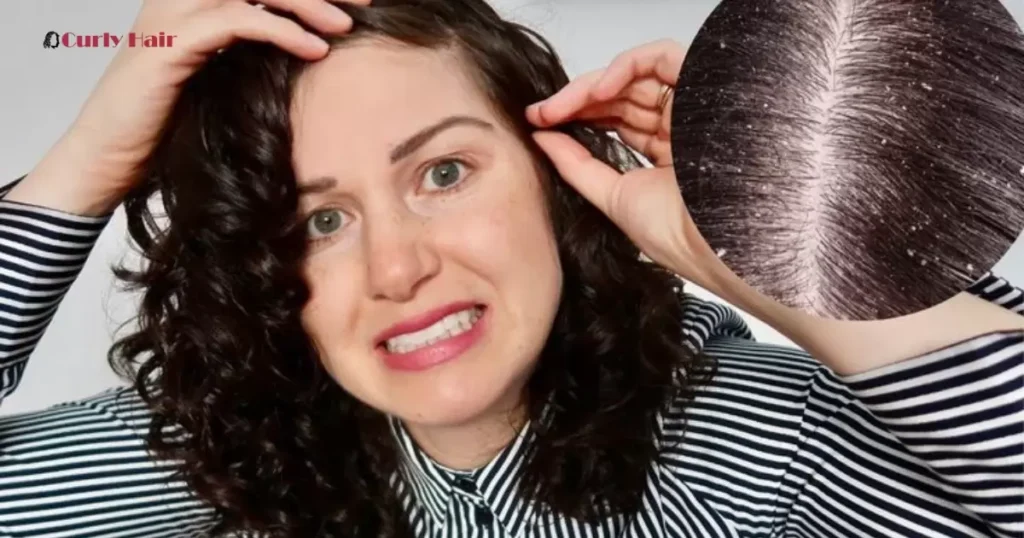
Dandruff in curly hair often comes from an overgrowth of a yeast-like fungus on the scalp. This fungus feeds on oils and dead skin cells, leading to irritation and flaking. Environmental factors like humidity and pollution can worsen the condition. Poor scalp hygiene or infrequent washing can also contribute to buildup and flaking.
Another cause is a dry scalp, which is common in curly hair due to its natural texture. Curls make it difficult for natural oils to spread evenly, leaving the scalp dry. This dryness can lead to irritation and the development of flakes. Proper hydration and regular cleansing can help manage and prevent these issues.
What Shampoo Do I Use For Dandruff?
Choose a gentle, sulfate-free shampoo designed for sensitive scalps. Look for ingredients like zinc pyrithione, which fights flakes and soothes irritation. A formula with tea tree oil can also help cleanse the scalp while reducing itchiness. Avoid shampoos with harsh chemicals that may dry out your curls.
Consistency is key when using these shampoos. Wash your hair regularly, but not too often, to maintain scalp health. Follow up with a moisturizing conditioner to keep your curls hydrated and soft. With the right shampoo, you can control flakes and keep your scalp balanced.
Chemical Ingredients That Work Against Dandruff
Certain chemical ingredients can effectively treat dandruff in curly hair. Zinc pyrithione helps reduce yeast on the scalp, which often causes flakes. Salicylic acid exfoliates the scalp, removing dead skin cells and reducing buildup. Selenium sulfide controls scalp fungus, helping prevent dandruff from returning.
Coal tar slows the growth of skin cells, reducing flaking and itching. Ketoconazole is an antifungal agent that targets the root cause of dandruff. When choosing a shampoo, look for these ingredients to maintain a healthy, flake-free scalp. Regular use can keep your curls and scalp in great condition.
Does Dandruff Cause Hair Loss?
Dandruff itself does not directly cause hair loss, but it can lead to problems if left untreated. The itching from dandruff may cause scratching, which can damage hair follicles over time. This damage can weaken hair and lead to breakage or thinning. Keeping the scalp healthy and treating dandruff early can help maintain strong, full hair.
Taking Care Of Curly Hair
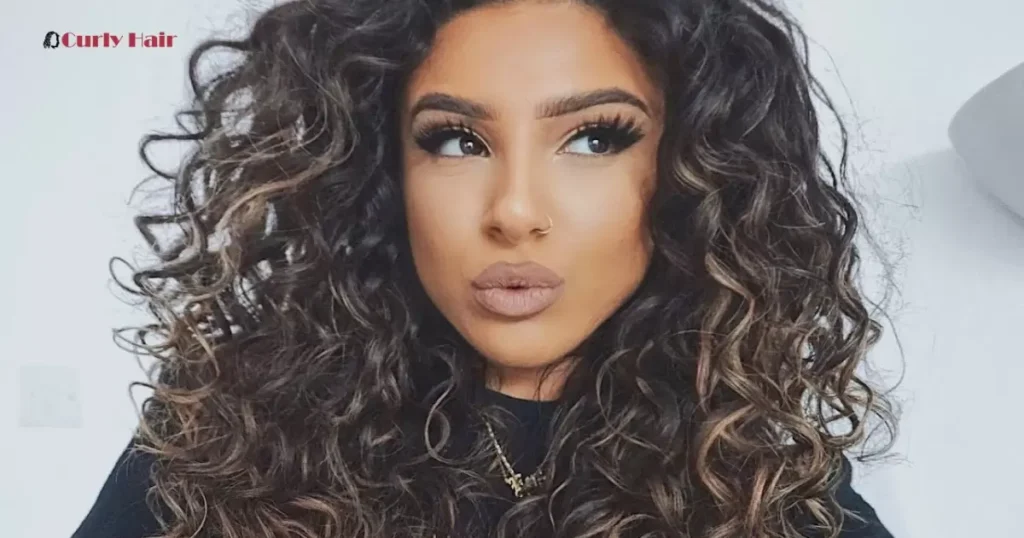
Moisturizing is key to keeping your curls healthy and defined. Use a leave-in conditioner daily to maintain hydration. Avoid over-washing, as it strips natural oils from your scalp and hair. Instead, wash your hair with a sulfate-free shampoo once or twice a week.
Regular trims help prevent split ends and keep your curls looking fresh. Use a wide-tooth comb to detangle your hair while it’s wet and coated with conditioner. To lock in moisture, apply a light oil or cream after washing. This routine helps maintain soft, bouncy curls.
Natural Curly Hair And Humidity: The Ultimate Battle
Curly hair often struggles in humid conditions, leading to frizz and unruly strands. Moisture from the air causes the hair to swell, disrupting your curl pattern. To combat this, use anti-humidity products that seal in moisture and protect your curls. A leave-in conditioner or serum can help keep your hair smooth and defined.
Maintaining moisture balance is key to managing curly hair in humid weather. Regular deep conditioning treatments can keep your curls hydrated and reduce frizz. When styling, opt for lightweight gels or creams that provide hold without weighing down your hair. This routine can help keep your curls manageable and frizz-free.
Tips To Grow Black Hair Naturally
- Eat a balanced diet rich in vitamins and minerals like iron and zinc.
- Use gentle, sulfate-free shampoos that keep your scalp healthy and clean.
- Moisturize your hair regularly with natural oils like coconut or olive oil.
- Avoid heat-styling tools that can cause breakage and slow hair growth.
Why Do People With Curls Have A Dry Scalp?
Curly hair makes it harder for natural oils to travel down the strands. This leads to dryness, especially on the scalp. The coiled shape of curly hair creates more gaps, trapping moisture away from the roots. As a result, the scalp can become dry and prone to flaking.
Environmental factors like cold weather and indoor heating can worsen dryness in curly hair. Frequent washing with harsh shampoos also strips away natural oils, making the scalp even drier. To combat this, using moisturizing products and reducing heat exposure can help maintain a healthy scalp.
What Causes A Dry Scalp?
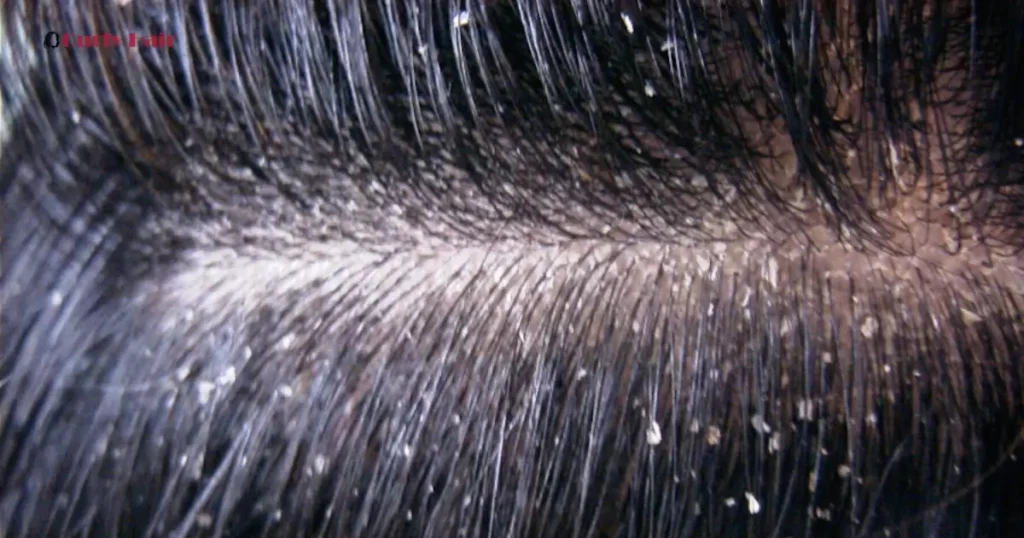
Curly hair tends to be drier because natural oils struggle to travel down the twists and turns. The curls create barriers, making it harder for moisture to reach the ends. This can lead to a dry scalp and frizz, especially in harsh weather conditions.
The scalp’s natural oils help protect and hydrate, but with curls, the oil distribution isn’t even. Without enough moisture, the scalp becomes dry and flaky, causing discomfort and visible dandruff. Regular care and hydration are essential to maintain healthy curls and a balanced scalp.
Difference Between Dry Scalp, Dandruff & Other Scalp Conditions
A dry scalp is often caused by a lack of moisture and can feel tight and itchy. Dandruff, on the other hand, results from an overgrowth of yeast and leads to visible flakes. Other scalp conditions, like psoriasis or eczema, involve inflammation and red patches.
Understanding the differences helps in choosing the right treatment. A dry scalp needs more moisture, while dandruff requires anti-fungal solutions. Scalp conditions like psoriasis might need specialized treatments from a dermatologist.
Frequently Asked Questions
How do I stop my curly hair from flaking?
To stop your curly hair from flaking, use a moisturizing shampoo and conditioner. Regularly apply a hydrating hair mask to keep your scalp and curls nourished.
Should I wash my curly hair every day if I have dandruff?
No, washing curly hair every day can strip natural oils and worsen dryness. Use a gentle, moisturizing shampoo and wash less frequently to manage dandruff.
What kills dandruff in hair?
Anti-fungal shampoos and treatments with active ingredients like ketoconazole or selenium sulfide effectively kill dandruff. Regular use of these products helps reduce flakes and control scalp yeast overgrowth.
Conclusion
To manage dandruff effectively, start with a gentle shampoo that targets flakes without harsh chemicals. Consistent use of moisturizing and hydrating products helps keep your curly hair healthy. Incorporating natural remedies like coconut oil or tea tree oil can also be beneficial.
Understanding the difference between dry scalp, dandruff, and other conditions is crucial. If over-the-counter solutions do not work, consider consulting a dermatologist. For those asking, how can I get rid of dandruff in curly hair? applying these methods consistently will bring noticeable improvement.
